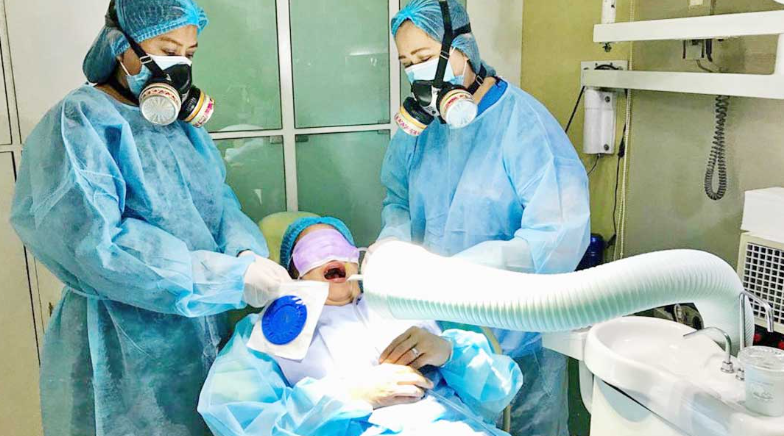When we think about oral health, we often think of bright smiles and cavity-free teeth. But your mouth is more than a tool for eating or speaking—it’s a window to your overall health. From gum disease to airway issues, what’s happening in your mouth can tell us a lot about what’s happening throughout your body.
In this article, we’ll explore the hidden connections between oral health and systemic wellness, unravel some dental controversies, and give you actionable tips to maintain a healthy mouth—and by extension, a healthy body.
The Silent Threat of Gum Disease
One of the most underappreciated threats to your health lies in your gums. Periodontal disease, commonly known as gum disease, is a chronic inflammatory condition that starts with plaque buildup and can progress into a serious issue. What many people don’t realize is that this goes beyond the mouth. Studies have linked gum disease to systemic problems like heart disease, diabetes, and even respiratory issues.
The early stages, known as gingivitis, are often reversible with proper care, but if left untreated, it can evolve into periodontitis. This more advanced form can result in bone loss, receding gums, and even tooth loss.
Takeaway: Don’t ignore bleeding gums. Regular brushing, flossing, and professional cleanings are critical for keeping inflammation in check—not just for your teeth, but for your whole body.
The Oral Microbiome: More Than Just Bacteria
You’ve probably heard about the gut microbiome, but did you know that your mouth has its own microbial ecosystem? Over 700 species of bacteria, fungi, and viruses live in your mouth, playing a crucial role in digestion and immune function. When the balance of these microorganisms is disrupted— say, by poor diet or oral hygiene—it can lead to tooth decay, gum disease, and systemic inflammation.
Interestingly, certain beneficial bacteria in your mouth can actually help protect you from pathogens. For example, strains like Streptococcus salivarius can fend off harmful microbes that cause bad breath and dental disease.
Takeaway: A diet rich in whole foods, regular brushing, and flossing can support a healthy oral microbiome. Avoiding excessive sugar and the overuse of antibacterial mouthwash will also help maintain this delicate balance.
Airway Issues: The Overlooked Connection
Did you know that how you breathe can impact your dental health? Mouth breathing, sleep apnea, and conditions like tongue-tie don’t just disrupt your sleep—they can lead to dry mouth, tooth decay, and even facial structure changes in children.
Sleep apnea, in particular, has been associated with teeth grinding (bruxism), which can wear down teeth and cause jaw pain. Addressing airway issues often requires collaboration between dentists, orthodontists, and sleep specialists.
Takeaway: If you or your child experience chronic mouth breathing, frequent snoring, or teeth grinding, consider seeing a specialist. These issues could be signs of deeper airway problems that impact both your oral and overall health.
Mercury Fillings and Root Canals: Dental Controversies Explored
Let’s talk about two of the most debated topics in dentistry: mercury amalgam fillings and root canals.
Mercury amalgam fillings, used for over 150 years, have been questioned in recent years due to potential mercury exposure. While many health organizations say these fillings are safe, others express concern over the long-term effects of mercury exposure.
Similarly, root canals, while a common procedure to save infected teeth, have faced criticism for potentially trapping bacteria in the tooth, leading to systemic health problems. Although most studies indicate that root canals are safe, it’s important to weigh your options carefully.
Takeaway: Ask your dentist about alternatives, like mercury-free composite fillings or other treatments, to make an informed choice that aligns with your health values.
Cavitations: The Hidden Health Risk in Your Jaw
Cavitations, or areas of dead bone in the jaw, are often overlooked in conventional dentistry. They can occur after tooth extractions, especially wisdom teeth, where the bone hasn’t healed properly. Some believe these cavitations harbor harmful bacteria, leading to chronic inflammation and even systemic health issues.
These areas are notoriously hard to diagnose, as they don’t usually show up on traditional X-rays. Specialized imaging and treatment from a holistic or biologically trained dentist may be necessary.
Takeaway: If you’ve had tooth extractions and are experiencing unexplained health issues, it may be worth exploring cavitation as a potential cause with a qualified holistic dentist.
Simple Tips for Maintaining Optimal Oral Health
At the foundation of good oral health is a consistent, mindful hygiene routine. Here are some essentials:
• Brush properly: Use a soft-bristled brush and fluoride toothpaste, holding the brush at a 45- degree angle to your gums.
• Floss daily: Get in between your teeth to remove plaque and prevent gum disease.
• Use mouthwash: Opt for an antiseptic rinse to reduce bacteria and inflammation.
• Mind your diet: Limit sugary foods, stay hydrated, and avoid smoking and excessive alcohol.
By paying attention to your oral health, you’re not only protecting your teeth and gums—you’re taking care of your entire body.
For those looking for further insights, in our podcast below, we discuss how chronic inflammation triggered by infected root canals could potentially exacerbate conditions like MCAS. Watch it to learn more:



